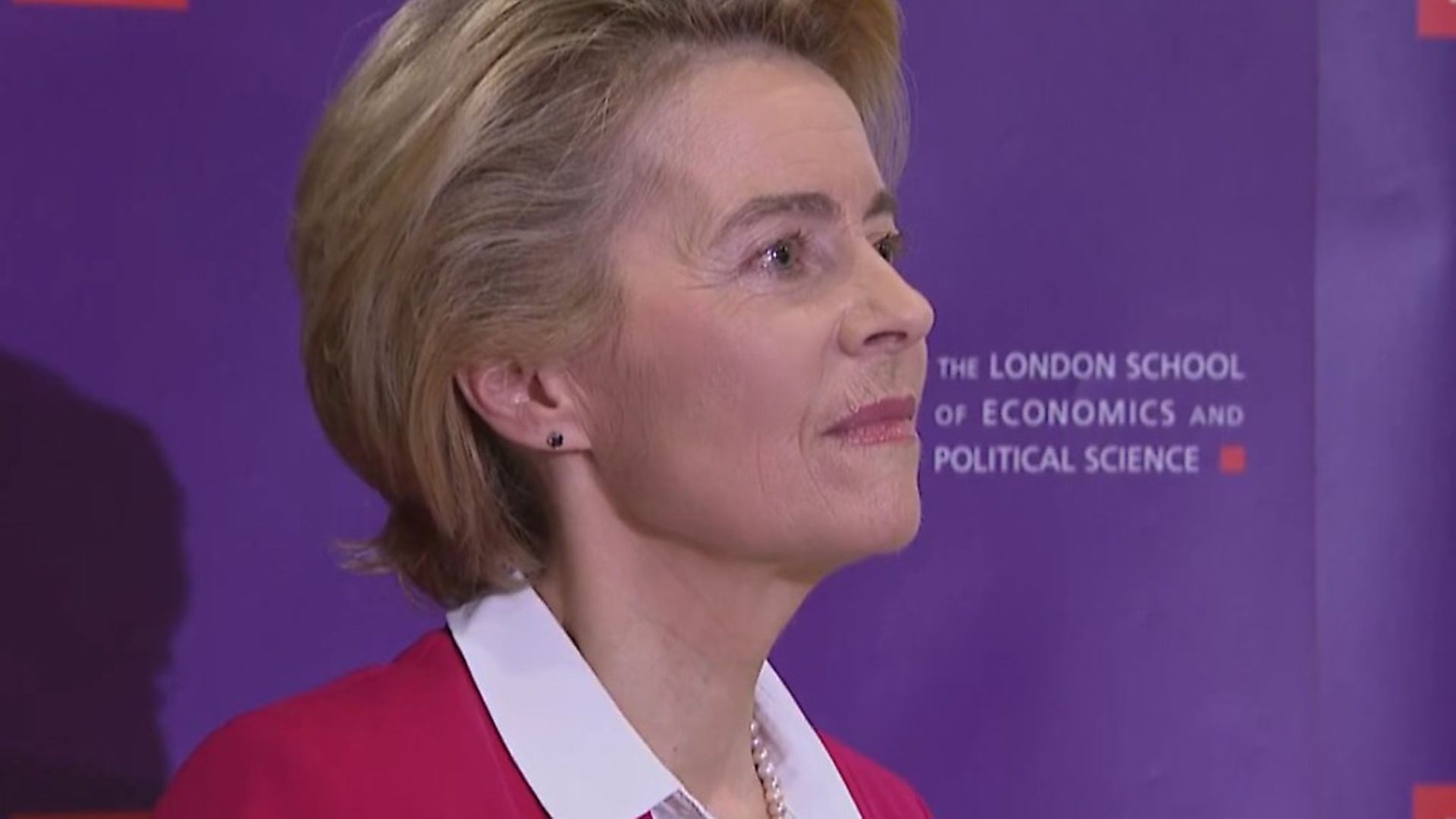
Ursula von der Leyen has expressed enthusiasm about a possible form of ‘associate EU citizenship’ but said that the ‘bitter truth’ is that it must come as part of wider negotiations.
The newly-anointed president of the European Commission spoke at a press conference at the London School of Economics prior to her meeting with Boris Johnson, and was asked about the British people who wish to remain members of the European Union.
A form of ‘associate membership’ has been floated as an idea and earlier backed by the EU’s chief Brexit negotiator Guy Verhofstadt – and von der Leyen said the EU is “very open” to such ideas.
But she warned that the UK will have “third country” status after Brexit and that any further advantages for British citizens would have to be negotiated as part of a deal that encompasses the free movement of goods, services and capital – along with people.
“Of course the question of citizens’ rights is a pressing one,” said von der Leyen, outlining the current rights of the roughly 3.5 million EU citizens in the UK and 1.3 million UK citizens in the EU.
But she added: “The bitter truth is that the UK will be a third country after Brexit and then we will have to negotiate.
“And this applies to everything that I have been talking about. So we are very open to do the most, because I’m a true believer that as much exchange as possible we should allow to our citizens.
“But as I’ve said before if for example free movement of people is excluded, well, there is a trade-off to that.
“And therefore it’s a matter of negotiation where we end up at the very end.
“You know that the European Union is very open to that question, that we are strong believers that we benefit both sides, very much, from free movement.
“Which goes also for the free movement of not only people but goods, services and capital.
“But those four principles go together. And therefore the next weeks and months will show at what point we will end.”
Boris Johnson’s vision of Brexit involves a full exit from the single market, the customs union and current EU freedom of movement arrangements, suggesting that several UK government red lines would need to move before the EU could consider an ‘associate citizenship’ arrangement.
The same principles will apply to negotiations concerning the Erasmus study travel programme and the EU’s REACH research programme, she said.
Warning: Illegal string offset 'link_id' in /mnt/storage/stage/www/wp-includes/bookmark.php on line 357
Notice: Trying to get property 'link_id' of non-object in /mnt/storage/stage/www/wp-includes/bookmark.php on line 37






